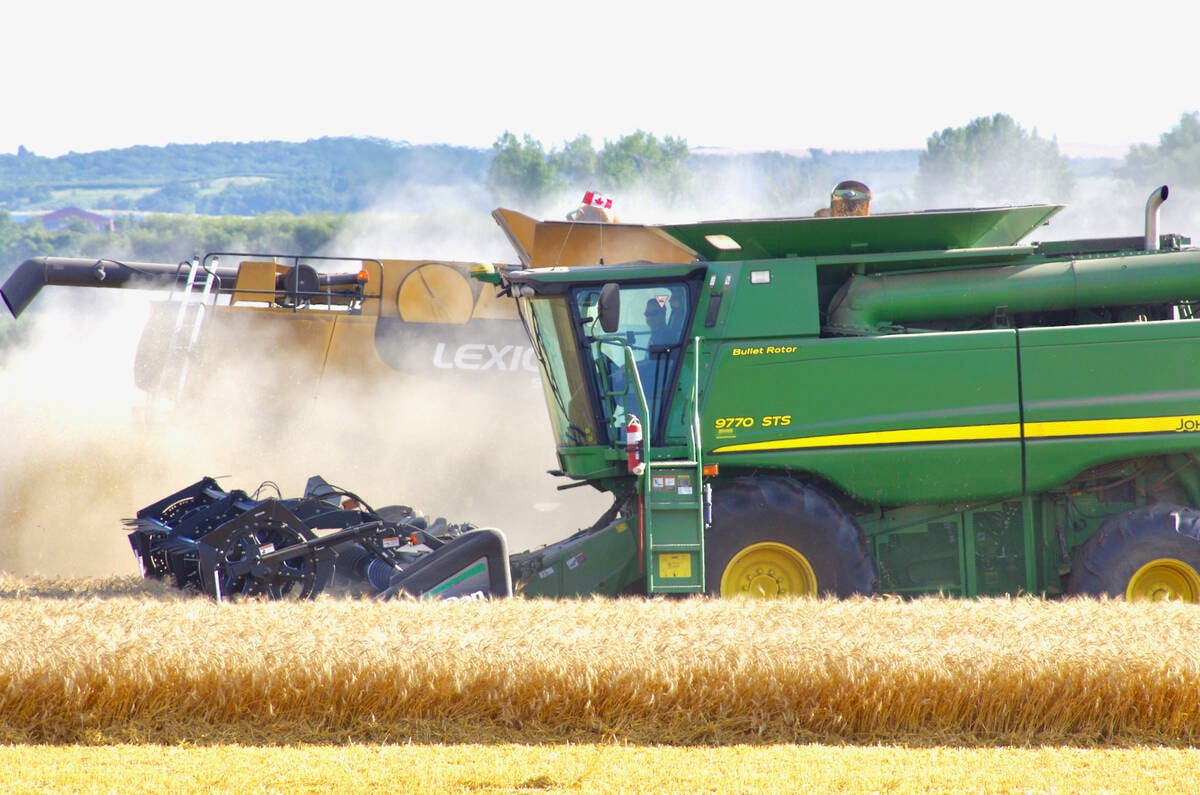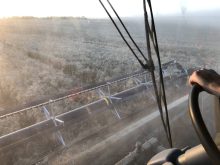“Transitional measures” that allowed some of Canada’s 2009 canola crop to enter some Chinese ports will be extended for another year to cover the 2010 canola crop.
The federal government confirmed late Monday that China will extend its measures that allow Canadian canola exporters to sign contracts with Chinese importers to move new-crop canola, within limits imposed by Chinese officials last fall.
“Today’s agreement is securing the conditions to export the 2010 crop year (starting in August) and we will continue to find a long-term solution to this issue,” federal Agriculture Minister Gerry Ritz said in a release Monday evening.
Read Also

Prairie Wheat Weekly: Most Western Canadian bids higher
Western Canadian wheat prices were higher on Oct. 16, 2025 compared to the past week.
China in November 2009 imposed a requirement on all Canadian canola exports for phytosanitary certificates that certify shipments as free of blackleg.
“This is good news for Canadian canola producers who depend on the Chinese market, but we realize there’s still a lot of work left to do before canola trade with China is fully normalized,” Ritz said Monday.
Canola is one of Canada’s most valuable exports to China, the government said, noting exports to China from the 2008 Canadian canola crop were worth $1.3 billion.
Total exports in the 2008-09 crop year amounted to 2.8 million tonnes, whereas current restrictions limit Canada’s market access to around 1.4 million-1.5 million tonnes.
Exports from the 2009 canola crop during the first nine months of that crop year totalled 1.6 million tonnes, worth $684 million.
“Door slightly open”
Under the transitional measures, Canadian canola testing positive for blackleg could only be delivered to a limited number of facilities, in areas where Chinese rapeseed is not grown.
The one-year extension allows deliveries to continue to those specific ports.
China’s limits on ports of entry for Canadian canola were meant to reduce the chances of blackleg being transferred to the domestic rapeseed crop, the Canola Council of Canada said in a release Tuesday.
“While the extension keeps the door slightly open to China, it doesn’t open it any wider,” council president JoAnne Buth said. “We still have only very limited access, so we will continue to work with China to address their blackleg concerns and to restore full trade.”
Canada is undertaking co-operative studies with China to analyze ways to reduce exposure of China’s crop to blackleg, and is working on dairy feed trials to increase the value of canola meal in China.
The council credited “persistent efforts in China by the government of Canada and our industry” to maintain the current level of access.
Buth described the extension as “very good news and it shows that China values its canola trade relationship with Canada.”
In Monday’s release, federal International Trade Minister Peter Van Loan noted he raised the canola issue with his Chinese counterparts during the Asia Pacific Economic Co-operation (APEC) ministerial meetings in Japan.
“While we are pleased with the progress on this issue, it will be raised again at every opportunity to ensure our canola producers gain long-term access to the Chinese market,” Van Loan said.











